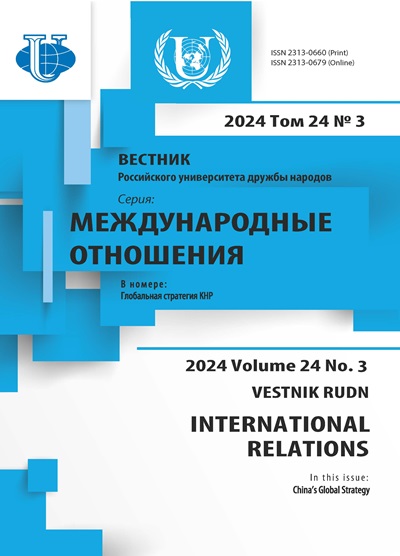详细
Since the early 2000s, China has been putting consistent efforts to push its way into the Arctic and secure a position as an equal participant in international political and economic processes in the region. The relevance of this research lies in the crucial importance of the Arctic for the Russian Federation and, consequently, the necessity of developing a balanced foreign policy approach based on an objective assessment of the strategies of major “players” in the region, including China, which is gradually expanding its presence in the Far North. Despite the considerable number of studies conducted by Russian and foreign scientists on various aspects of China’s Arctic policy, the long-term goals of Beijing in the Arctic in the context of its strategy to transform the global governance system remain insufficiently researched. This study aims to identify the key drivers of China’s Arctic policy and to assess the way the implementation of China’s approaches to the core issues of the future development of the region could pose a threat to Russia’s interests. The study is based on the theory of offensive realism, which allows to justify the high degree of competition between the world powers in the geopolitical space of the Arctic and to explain the significant offensive potential of China’s foreign policy, including its northern dimension. The author employed a combination of institutional, logical, and expert assessment methods. The cornerstone of the methodological framework of the research is the systematic approach, through which the Arctic policy of the People’s Republic of China (PRC) is analyzed in a variety of its components with respect to the changing international environment, as well as in the broader context of Beijing’s global foreign policy strategy. Based on the analysis of China’s Arctic policy over the past decades, the author identifies the risks associated with the increased involvement of Chinese capital in the infrastructure projects in the High North and the integration of Russia’s northern logistic route into China’s Belt and Road Initiative (BRI), which aims to transform the global economic system and the structure of international relations to China’s advantage.









